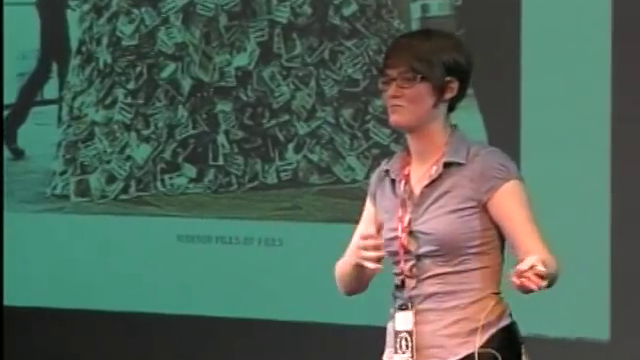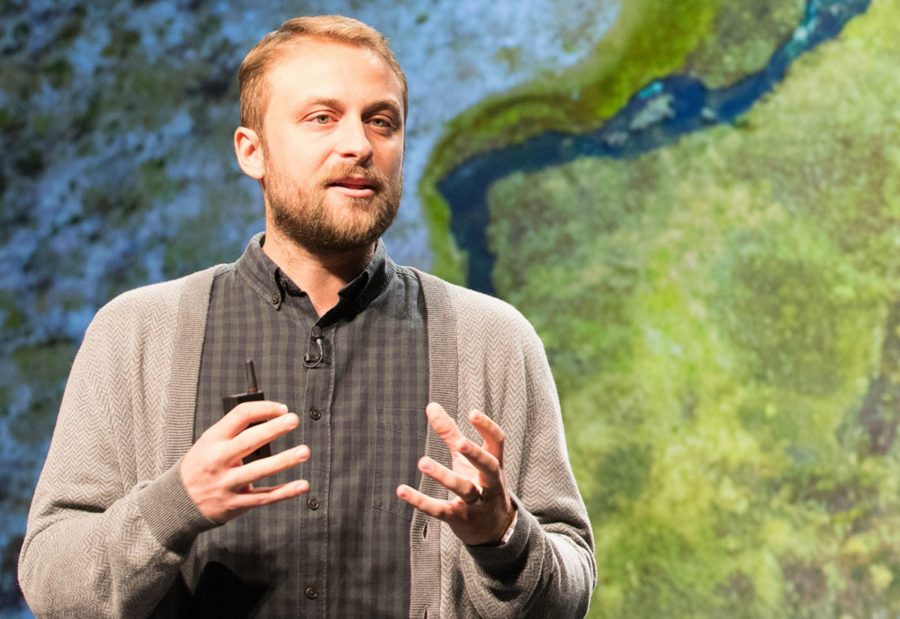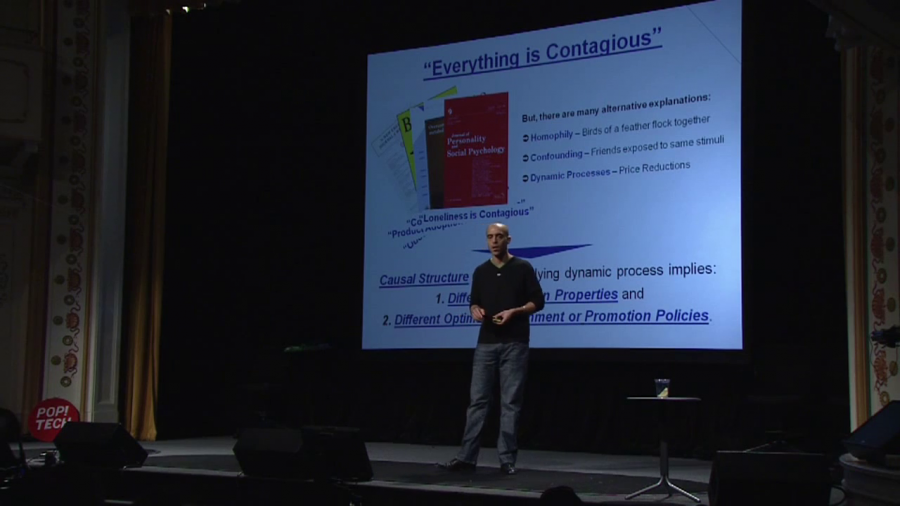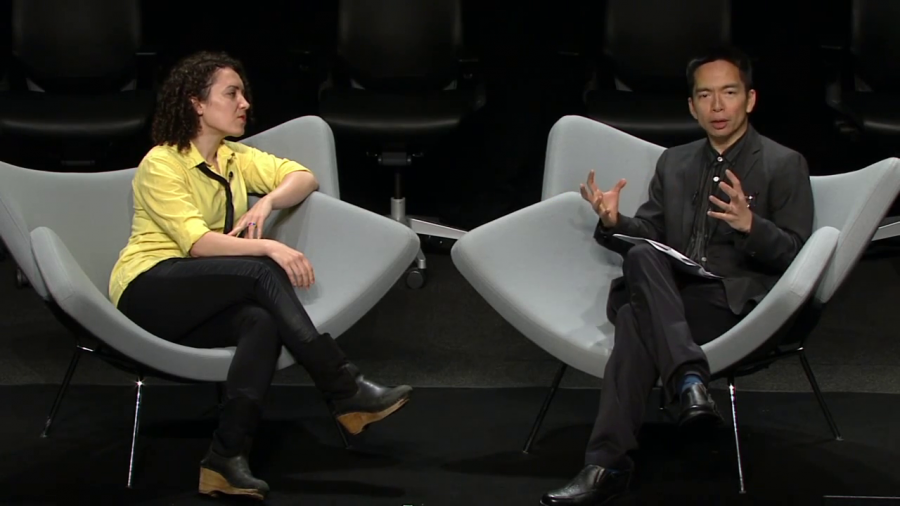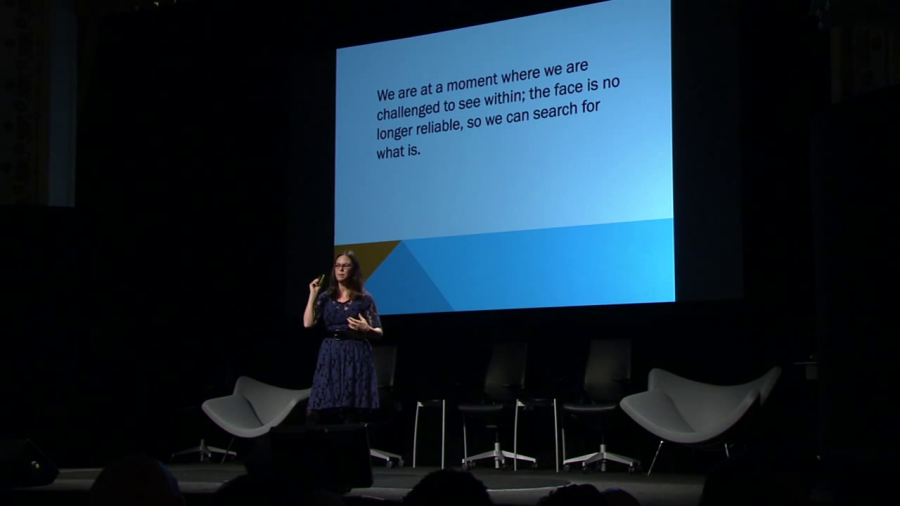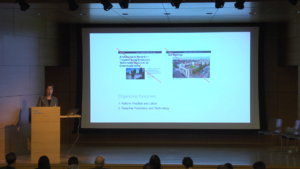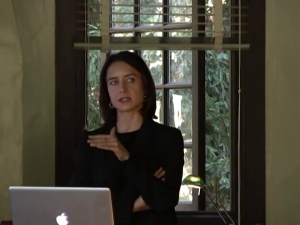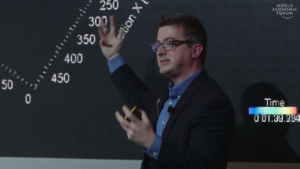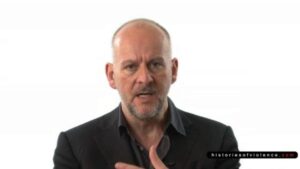When you look at your online profile, is that really you? It’s a representation of you that can be acted on when you’re not there. But where do you end and the machine begins? The thing is that humans and technology have coevolved with each other over time, being very very cocreative. We have survived because of technology, and technology has survived because of us.
Labor, Architecture and the Green New Deal
presented by Peggy Deamer
The main thing that we need to be doing is working as a discipline, as a profession, as a unified voice, so that we sit at the table of policymaking and are believed as not just ambulance-chasers for work for ourselves but as people with knowledge and whatever embeddedness in the community, and our design expertise within the community is absolutely essential. Read more →

